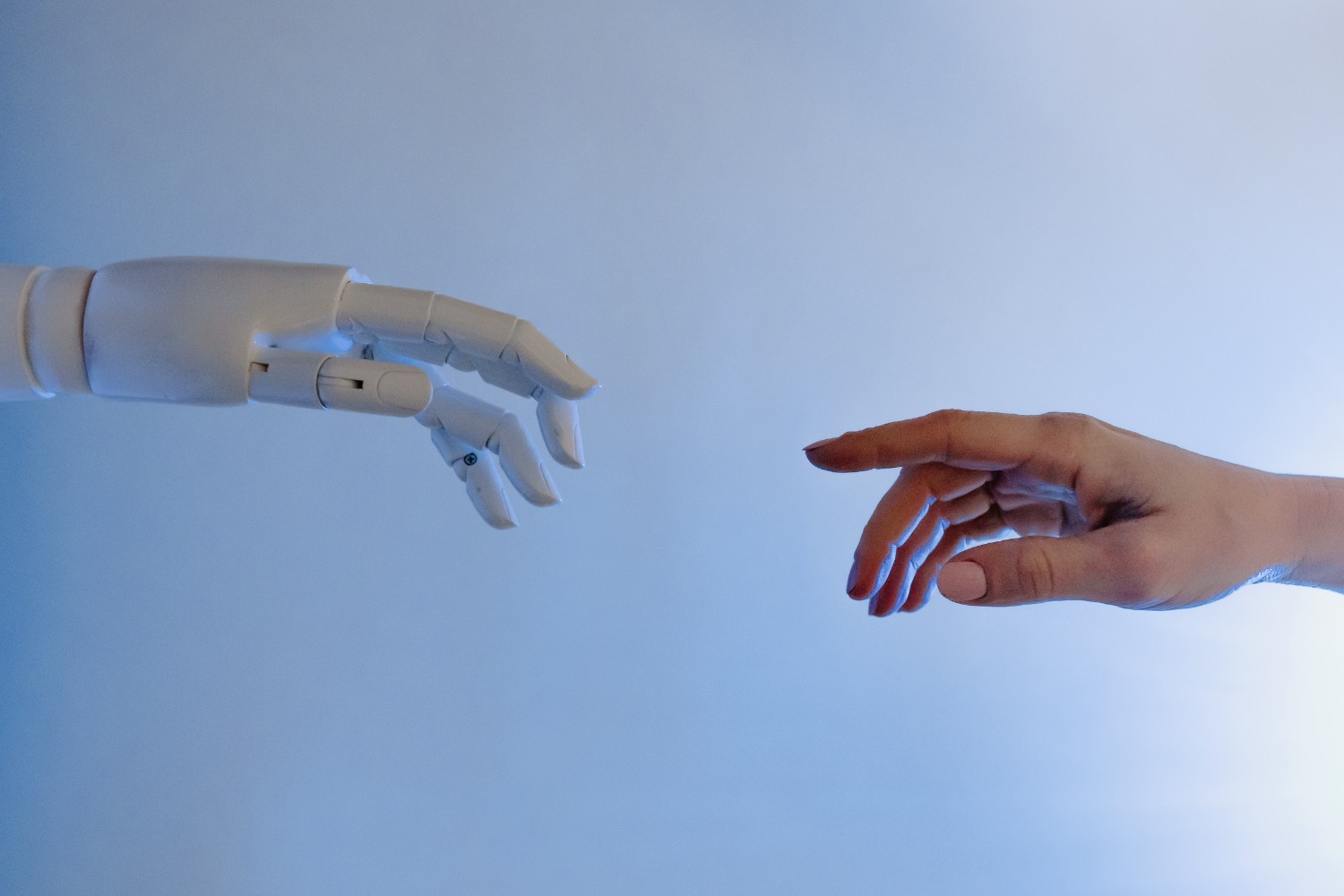Artificial intelligence may be closer to taking over the world than ever before. We have all seen the potential of AI with copywriting, visual art, and of course, voice overs. Remember when Siri’s voice was the talk of the town? Well, now we’re hearing Siri-like voices all around us; social media content, GPS, smart devices, and many more.
So how did this happen? Should voice talents be concerned about AI taking over the industry? Read along as we explore the buzz of AI voice over and what it means for the future of the voice over industry.
The rise of AI voices
There’s no denying that AI-generated voices are taking the world by storm. You can hardly scroll any social media platform without coming across a video narrated by a robotic voice.
Some websites are even giving visitors the option to listen to articles. Just earlier this year, Apple followed the crowd by launching a new feature to have audiobooks read by: you guessed it, AI voices.
The company claimed that this would help smaller publishers and lesser-known authors save both time and money. Recording the whole book with a human narrator is indeed expensive and time-consuming.
Cheap, fast, and effortless are factors that make everyone drool. That’s precisely why this new voice over technology is booming for those looking to add narration to their content. Hassle-free.
We at Voicebooking have witnessed the hype ourselves. In fact, our voice over generator platform has a staggering twenty thousand users per month. The number has doubled in over a year.
More ways to use AI Voices
Are you aware of the many uses of automated voices? It’s no longer just applied for basic purposes like recording voicemail messages. Our voice generator, for instance, enables you to create narrations for commercials, gaming, web videos, e-learning, and more.
With the help of AI voice generator tools, you can access realistic, engaging, and expressive voices for a wide variety of productions. All within seconds. In fact, synthetic voices are starting to become a potential alternative for dubbing films.
That’s not all. Besides making life easier for producers, AI voices also benefit the audience, especially those with reading or visual disabilities.
If you are making e-learning courses, providing an option for auditory learners is a great idea. They learn best through their ears and can retain up to 75 percent of what they hear.
As the technology in the voice over industry continues to evolve, more innovative uses for artificial voices will likely emerge.
AI voices now sound more human
We have come a long way, the first ever speaking machine was invented around 1800. Played like a musical instrument, it produces a trumpet-like sound of simple words like “mama” and “papa”.
After 200 years, the talking machines of our time, Siri, Cortana, and Alexa, speak to us so eloquently. Sure, they are far ahead of their speaking machine ancestor, but they still lack qualities that make speech sound, well, human.
Recently, more and more tech companies have conducted new research and developed tools that can capture those natural speech qualities. Artificial intelligence voices have advanced drastically. Some robot voices no longer sound robotic.
I remember the first time listening to Apple’s AI-narrated audiobooks. I was surprised by how real they sounded. They took me back to the good old days when my mother read me bedtime stories. The rhythms, the intonation, the little silences, all come almost naturally.
Will AI voices replace humans?
It’s indeed incredible how far computers have come to mimic our voices. But then, the big questions arise: Is AI a threat to the voice over industry? Has the war against the machine begun?
I’ve heard my fellow voice talents worried that the world will prefer cheap and fast digital voices over theirs. But let’s take a closer look. Most of our AI voice generator users are not clients who have worked with our voice overs. They do not have a roster of talents.
Those who work with voice overs aren’t likely to use synthetic voices. Even if they do, it’s often limited to projects that don’t require a human touch, such as instructional manuals. So, it’s clear that these are two different kinds of clientele.
AI still has a long way to go before it can truly replicate humans. We bring artistry to our work that machines cannot do. We don’t only convey emotion. We pour our heart and soul into the work.
Remember that our voices bring warmth and authenticity that’s hard to replicate. Instead of fearing the inevitable rise of AI voice-over technology, we can embrace it and coexist.
Try out our voice-over generator
With the ability to generate voice over in only seconds, AI voices are becoming a popular choice for narrating various productions. The advancement in this industry will only continue to grow. So why not be ahead of the game and give it a try yourself?
Our newly launched Voice Over Generator 2.0 allows you to generate advanced robot voices for your content. You can customize the emphasis, speed, pitch and even add pauses between words. Embrace the AI voice revolution today!




